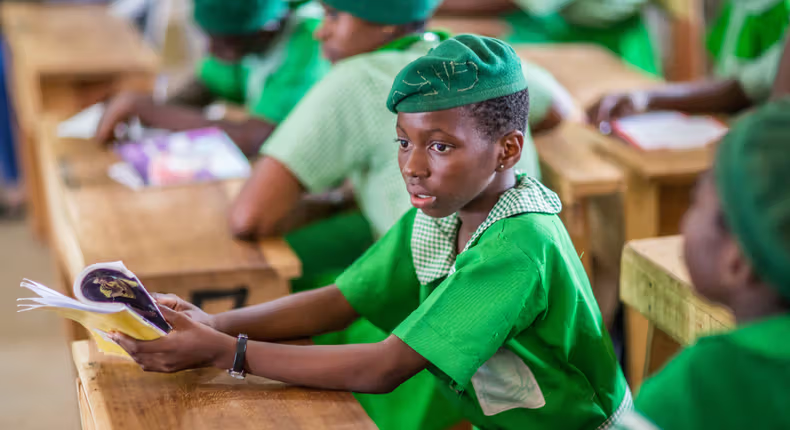At the 2024 Joint Admissions and Matriculation Board (JAMB) policy meeting on education in Abuja, several stakeholders opposed the newly established minimum admission age of 18 years.
Students of the Muslim Girl’s High School are pictured in Ijebu Ode, Nigeria, 11 June 2014. [Getty Images]
When the Minister of Education, Prof. Tahir Mamman, announced the new policy, stakeholders from various tertiary institutions reacted strongly, causing a disruption. According to Daily Trust, their vocal objections compelled the Minister to halt his speech temporarily until order was restored.
One participant at the stakeholder meeting expressed that JAMB is to blame for permitting underage children to take the examination. “How can a child finish school, write WAEC and JAMB, and pass, and you deny him admission?” the participant questioned, highlighting the frustrations regarding the new policy.
Responding to complaints from the participants, the Minister emphasised that the law mandates children to be in school until the age of 18, following six years of primary education, three years of junior secondary, and three years of senior secondary schooling. He reiterated that the new policy is based on this legal framework and that institutions must comply.
Prof. Mamman stated, “There is no going back,” underscoring the government’s commitment to enforcing the new admission age requirement. He also highlighted that the purpose of the meeting was to ensure a fair admission process for the 2024/2025 academic session. The Minister reiterated the Federal Ministry of Education’s stance on the Central Application Process (CAP), emphasizing that any institution conducting admissions outside this process would not have their admissions accepted.
This strong stance aims to address concerns regarding underage admissions and ensure compliance with educational policies to improve the overall quality of education in Nigeria.

